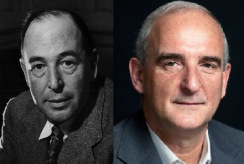 John Green posted an educational “rant” about health care costs in the US:
John Green posted an educational “rant” about health care costs in the US:
He says some interesting and true things in pointing out the difference in price between what Americans pay for healthcare and what people in other countries pay. He also did a gratifying job of knocking down some simplistic explanations for that discrepancy.
In my opinion, he does not satisfactorily address the possibility of differences in quality. If I have to wait two years for a hip replacement in one country, and can get it in a week in another country, that datum must be accounted for. But I am not arguing for that explanation for the difference in price. I’m just mentioning that I wish he had addressed it more thoroughly.
Green’s real problem is six minute in. Supposedly, other countries keep health costs down by taking bids from manufacturers and only giving the contract to the lowest bidder. According to Green, the government has more negotiating power than individual consumers and only the government can get corporations to really offer low prices because they want the government contract to provide a good or service to the everyone in the entire nation that needs that service.
But why shouldn’t the government take national supply bids on everything and thus provide consumers with goods and services at a lower price then they can ever get for themselves? (Side note: don’t people hate Walmart for allegedly doing something like this? Does the government sanctify the action?) According to Green, the alleged inability of consumers to get a lower price is due to “inelastic demand.” Because the person needing the hip replacement really needs it and cannot live without it, the corporation can charge him more.
John Green’s reasoning cannot be right.
Go to any grocery store. Food is necessary. It is more continually necessary than medicine. As Megan McArdle writes:
Food and water are far more vital than health care, let alone higher education, which the human race managed to do without for a few hundred thousands of years. You can go quite a while without blood pressure medication or even insulin — much longer than most people could go without fuel for heating or cooking. Clothing and some sort of shelter would also rank higher on the list of imminent necessities than health care and education. Yet none of these goods displays health care and education’s pattern of above-inflation cost increases. It’s true that demand for education and health care is what economists call inelastic — meaning that the demand doesn’t decrease very much even when the price rises — but that doesn’t explain why the prices of these two inelastic services, and no others, has risen faster than inflation for decades.
You will notice that McArdle is responding to someone who is attempting to explain both why health care costs in the US and also why education costs so much. I’d be interested in what John Green thinks of this argument since Green gets so eloquent about how badly health care is needed. He certainly can’t claim that education rises to that level.
But that’s the point: treating the cost of health care as a single problem in the American economy is a fundamental error. Historically, we have more than one industry that is or was characterized by prices rising faster than inflation. Housing was one until the country could no longer take it. Education is another one. Perhaps energy/utility costs are another one.
The problem is not in the health care industry. The problem is the Federal Reserve and corrupt monetary policy (to be redundant). The American financial “system” produces booms and busts. Some, like housing, expanded and then contracted relatively recently. Others might have started earlier and yet not collapsed yet.
If you run ten times the allowable amount of water pressure to run through a hose, the hose will spring leaks. Each one of those leaks might be explained as a weakness in the hose, something that allowed water to flow at that point. But the weaknesses in the hose are not really an explanation of why the hose leaked. It leaked because there was too much water going through it.
Likewise, there are reasons why price inflation is hitting the health care industry and not groceries, but those reasons are not “why” we pay more. We pay more because of the Federal Reserve’s manipulations. We have a bubblicious economy. That is where people should focus their attention if they want to see prices get reasonable.








